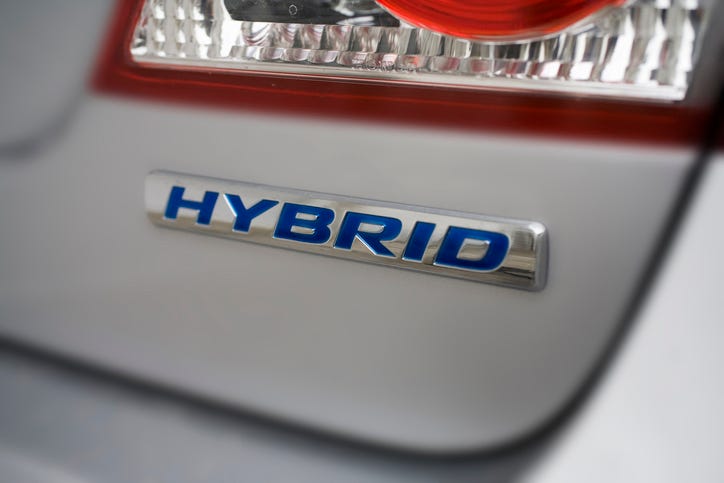
When it comes to making the jump from traditional vehicles to full-on electric, Americans seem to be more comfortable dipping their toes in the water instead of taking the plunge.
According to the U.S. Energy Information Administration, combined sales of hybrids, plug-in hybrids and battery-electric vehicles (BEVs) hit a record-high 18% of the new vehicle market in the third-quarter of 2023.
Breaking down the third-quarter sales numbers even further shows where Americans' preference lies. The data from Wards Intelligence indicates about 10% of electrified car sales are hybrids or plug-in hybrids, while 8% are pure EVs.
What's more, sales of hybrids, plug-in hybrids, and BEVs have accounted for 16% of all new light-duty vehicle sales in the US so far this year, compared with 12.5% in 2022 and 9.0% in 2021.
As for why sales are picking up, the EIA noted that prices of hybrids and EVs declined across the most popular models.
"The average transaction price for BEVs dropped 5% during the third quarter to $50,283, bringing the price 24% lower than at the price peak in the second quarter of 2022. The average price paid for all light-duty vehicles fell less than 0.5% during that same time," the agency said. "BEV prices are now within $3,000 of the overall industry average transaction price for light-duty vehicles."
Although the price may be dropping, 83% of BEVs sold are considered luxury models and may be out of reach for the average consumer. Hybrids, on the other hand, average under $40,000 and are considered a happy medium for those looking to make the switch to electric, per Axios.
Among the 10 top-selling electrified vehicles this year, seven are hybrid models -- and reliability may be one deciding factor.
According to Consumer Reports, hybrids are among the most reliable vehicle types, with 26% fewer problems than conventional models. On the other hand, BEVs have 79% more problems reported than gas vehicles.
"Automakers have been making hybrids long enough that they've gotten really good at it. Plus, many hybrids are also made by manufacturers that tend to produce reliable vehicles overall, such as Toyota, Hyundai, and Kia," Steven Elek, an auto data analyst, told Consumer Reports.
